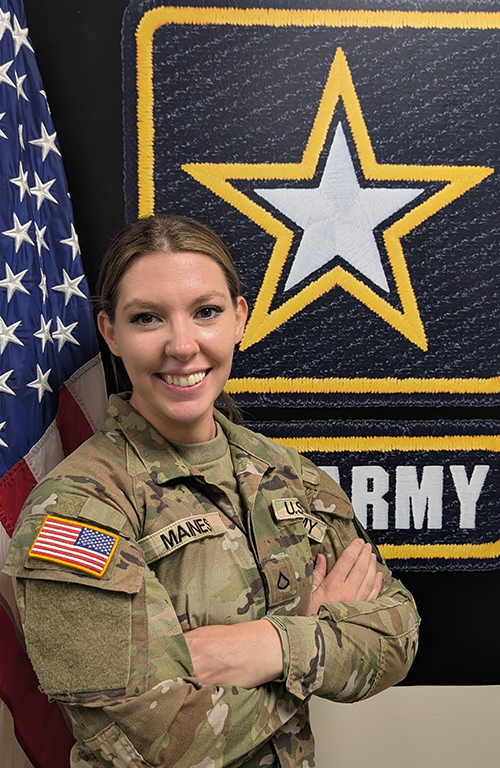Paralegal Studies Certificate Program
Our program offers a fully online certificate that is designed to provide students with the practical skills needed to start or advance a career in the legal community. Courses are taught synchronously with live instructor-led sessions as the primary mode of instruction. Asynchronous components may be used to complement instruction.
ABA-Approved Certificate
If you are ready to be a paralegal our ABA-approved certificate program is for you. It's offered full time over the summer or part time in the evenings during fall, winter and spring terms. Classes are delivered in a fully online format using both synchronous and asynchronous learning.
Career Outlook
Diverse Opportunities: As a graduate, you’ll have the flexibility to work in a wide range of settings, including law firms, corporate legal departments, government agencies, and non-profit organizations. Your career can be as varied and exciting as you choose!
Program Information
Our program offers a fully online certificate that is designed to provide students with the practical skills needed to start or advance a career in the legal community. Courses are taught synchronously with live instructor-led sessions as the primary mode of instruction. Asynchronous components may be used to complement instruction.
Degree
Certificate
Duration
11 weeks (full time in summer) or 12-18 months (part time in fall, winter and spring terms)
Required Credit Hours
30
More in this Program
From Our Alumni
Program Learning Objectives
- Teach students the fundamentals of foundational legal theories and principles in various areas of the law.
- Require students to develop critical thinking and analytical skills necessary to adapt in a variety of legal environments and to generate, support and complete intended client outcomes
- Introduce students to the ethical standards and obligations imposed on all legal professionals, with specific emphasis on the standards and obligations imposed on paralegals and legal assistants.
- Familiarize students with information about the most current legal resources and law-related technology available to legal professionals.
- Prepare students to professionally communicate with strong written and verbal skills necessary to effectively convey to or obtain information from a host of audiences including attorneys, clients, and courts.
- Enhance professional development opportunities for students during the program through networking events, workshops, and individual career-planning sessions.
Application Process
Letter of Interest
Complete and Submit Application
Request Transcripts
Request your official* college or university transcript be mailed to:
Thomas R. Kline School of Law of Duquesne University
Paralegal Institute
600 Forbes Avenue
Pittsburgh, PA 15282
*Note: transcripts marked 'Issued to Student' are not official.
Schedule an Interview
Schedule an admissions interview with the program director. Call (412) 396-6313 or email%20paralegalFREEDUQUESNE.
Core Course Descriptions
Students must successfully complete ten (10) courses to earn their Paralegal Certificate. Five (5) of those courses are required, core courses.
Elective Course Descriptions
Students may choose to take any five (5) electives.
Students will learn the basic aspects of civil litigation, which include jurisdiction, venue, identification of local courts, initiation of civil proceedings, motions practice, e-discovery and discovery procedures, trial procedures, and basic evidentiary problems. The course emphasizes those areas in which a paralegal may assist counsel in preparation for litigation, such as identification of factual and legal issues, drafting pleadings, interviewing witnesses, preparation of witnesses for trial, obtaining evidence through discovery, organizing documentary evidence, and the use of demonstrative evidence. References will be made to administrative law and appellate procedures.
This advanced-level course regarding civil litigation in federal and state courts focuses on e-discovery which has become a substantial component of most civil suits filed in the United States. Students will learn how the Federal Rules of Civil Procedure and analogous state rules address the discover of electronically store information (ESI), and will examine a number of key court decisions relate to e-discovery. Students will also study analyses prepared by the Sedona Conference, the leading organization studying the escalating effects of e-discovery on civil litigation. The course will provide practical instruction about the administrative and mechanical aspects of obtaining and providing e-discovery in litigation, as well as common issues related to using ESI as evidence at trial.
Students may be placed in a paralegal position with a private law firm, government agency, court office, corporation, insurance company, bank, real estate company, community service agency, health care facility or other appropriate office. The term of the internship is 10 hours per week for 11 weeks. Internships are offered during daytime hours. Students must create a project portfolio and submit to the Program Director. The student will learn the practical daily operation of the assigned office. Supervised by a licensed, practicing attorney and usually by a practicing paralegal, the student will be both an observer and a participant in the operation of the assigned office. Internship hosts are not required to compensate interns. An internship at a student’s place of employment will be allowed only under restricted circumstances. (Prerequisites: 501, 505, 550, 551, 542)




